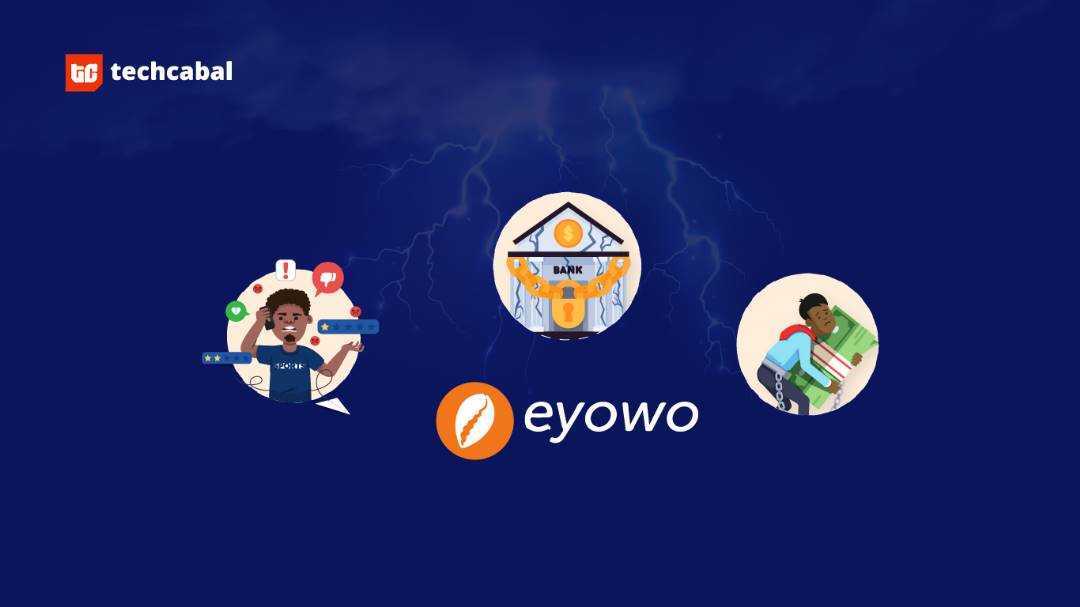Eyowo, one of Nigeria’s digital banks, has had a challenging year. While it has ambitious plans for the future, it has to deal with cashflow challenges, frustrated users and a revoked Microfinance Bank licence.
On Wednesday, Nigeria’s Central Bank revoked the operating licence of 47 microfinance banks. One of the licences revoked was Eyowo Microfinance Bank, which the digital bank, Eyowo, controls. According to the CBN, the revoked licences were either inactive, insolvent, failed to render returns, closed shop, or ceased to carry on the type of banking business for which they were licensed for more than six (6) months. While it remains unclear the specific reason Eyowo’s licence was revoked, the company’s CEO, Omoseinde Olobayo, told TechCabal that it is still “engaging the CBN to understand and resolve the issues.” This week’s licence revocation caps a truly stormy year for the digital bank.
Following CBN’s announcement, Eyowo—owned by Softcom—said that interbank transfers, which its Microfinance bank powered, would be on hold. It told customers via email, “Over the next few hours, you will experience challenges sending and receiving money with Eyowo. This may take up to 24-72 hours to completely resolve, we will keep you abreast of the progress made and the next steps.”
Eyowo’s timeline will expire on Saturday, May 27. In the interim, customers remain cautiously optimistic. An Eyowo customer, Jethro Will, told TechCabal, “I basically don’t have access to my hard-earned money. My friends use Eyowo as their main banking app; now we are all praying.” *Tunde, who uses Eyowo account for business, told TechCabal, “I didn’t know they had an issue until someone tried to send me money on my business account and said it failed.” But TechCabal understands these transfer delays started a few weeks before the digital bank’s MFB licence was revoked.
Eyowo’s product struggles
Weeks before Eyowo’s licence was revoked, users of the digital bank already began experiencing delayed and failed transfers. The company did not share the reason for those failures. And on May 19, Eyowo’s CEO, Omoseinde, shared in a video posted on an update on Twitter that it would no longer allow new users to register on the app until July 1. Omoseinde acknowledged some of the issues users had experienced on the app and said that the pause on new registrations was to fix those issues. A source close to the situation told TechCabal that Eyowo had been revamping its app in the last few months.
In April, Omoseinde told TechCabal exclusively that Eyowo was experimenting with some features. He said, “One important thing for us is that we’ve been asking ourselves questions about how you enable financial growth. For example, how do you deliver value to businesses? This seems to be where the value lies for us as a company.” At the end of the experiment, Eyowo’s CEO said that it aimed to connect entrepreneurs who sell products to a large market of customers. Essentially, Eyowo was looking to connect the business owners it served to its customers. It sounded like a later version of GT Bank’s Habari, an app that lets users find music, shop, and do their banking transactions.
From the conversation with the company’s leadership, Eyowo was betting that the company’s future was a similar social commerce play. But first, it would have to motivate hundreds of employees to keep working on the product despite several salary delays.
An unexpected sacrifice for a promising product
After several unconfirmed reports, Eyowo confirmed in April that it was owing staff salaries but did not confirm how many months it was owing. It was not the first time the company would owe salaries. One report in December 2022 claimed Softcom, Eyowo’s parent company, laid off 20 people and that staff hadn’t been paid their November salaries.
Yomi Adedeji, Eyowo’s Co-CEO, told TechCabal that the missed payments were “unexpected sacrifices” for “a promising product” that the company was on the precipice of launching. He said the product research and validation took longer than expected, leading to the company spending more than anticipated on the research. “Using the revenue we had accrued as a [bootstrapped] company over the past years, we were doing experiments and research for a new [e-commerce] product. In the middle of that, COVID hit. It’s been quite some sacrifice for everyone, including the workforce and those who have served us as partners or another business,” Yomi said.
“About 150 people have gone through this moment of sacrifice with this mindset. It is possibly just 5% or 10% who may feel frustrated.” Yomi admits, however, that there may have been some communication gaps along the line. “When there is uncertainty, you can only inform people as you get clarity. When you are dealing with a company of about 180 people, information may take 3rd-party interpretations that may not have come from the company itself.” The company confirmed in April that it has come to the end of its experiment and is happy with the outcomes. At the moment, the company was going through what he calls “recapitalization” to make sure that it has all the financial resources that it needs to succeed long term.
But Eyowo is not yet out of the woods. One source told TechCabal that employees have now been paid half of what they were owed. While it continues engaging the Central Bank in the hopes that its licence revocation will be overturned, there are many other existential questions that Eyowo has to answer if it will realise its ambitions to provide value to businesses by connecting them to a large market.
























